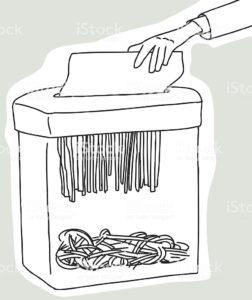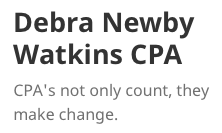
AIG is back at the trough: US Throws New Lifeline to AIG
On October 7 the House Committee on Oversight and Government Reform held their second day of hearings on the financial crisis in Wall Street. The first day addressed Lehman Brothers, the second, AIG.
Michael Sullivan, the fired executive of AIG, blamed mark to market accounting rules required under FASB 157 for all of AIG troubles: “No disaster as massive as the unforeseen and unprecedented financial market disruption that has occurred over the past year is the result of a simple or single cause. The world’s current economic challenges are obviously related to multiple actions by multiple parties. To assist the Committee, I would like to focus on one particular factor-the role played by one accounting rule applied to corporations.
“The accounting rules require that certain assets be ‘marked to market.’ In other words, companies must declare the value of those assets, on a quarterly basis, at the price such assets could sell for on the market at that point in time. Companies must declare these values on their books even if they have no intention of, or immediate need to, sell the assets, and even if they have not realized any actual gain or actual loss. FAS 157, which was adopted relatively recently, set out specific guidelines as to how companies must determine the “market price” of certain categories of assets. However well FAS 157 operates under any reasonably foreseeable market conditions, in the unprecedented credit crisis which began in the summer of 2007, FAS 157 had, in my opinion, unintended consequences. In a distressed market where assets cannot be readily sold, companies are forced to declare the value of those assets at fire-sale prices.”
One of the fundamentals of accounting and taxation is that fair market value is what a willing seller and a willing buyer will agree is the value of an asset. If an asset can’t be sold, it means there are no willing buyers, and the asset has no value. The difficulty with the “toxic assets” that companies want to offload onto the taxpayer is that there is no market so that it’s hard to determine a value.
From the hearing transcripts: Congressman Christoper Shays (R, CT): “Yesterday we sent a formal request to the Chairman asking for a specific commitment to make the federal mortgage companies a priority in this hearing, not an after afterthought. We can’t wait until Halloween to unmask these two failed monsters of mortgage finance.”
To read the complete hearings: http://oversight.house.gov/story.asp?ID=2208.
The Emergency Economic Stabilization Act mandated a study of these Mark to Market Rules. The study is to be performed by the Federal Reserve and Department of the Treasury. The report is due January 9, 2009.
To listen to the first SEC hearings on this matter: SEC Roundatable.
 Metal coins, paper, crypto-coins, and banking, where did our current money systems originate? Listen to this fascinating podcast from Think, KERA to learn more. “The first writing was just accounting.” Sounds like CPAs invented writing.
Metal coins, paper, crypto-coins, and banking, where did our current money systems originate? Listen to this fascinating podcast from Think, KERA to learn more. “The first writing was just accounting.” Sounds like CPAs invented writing.





